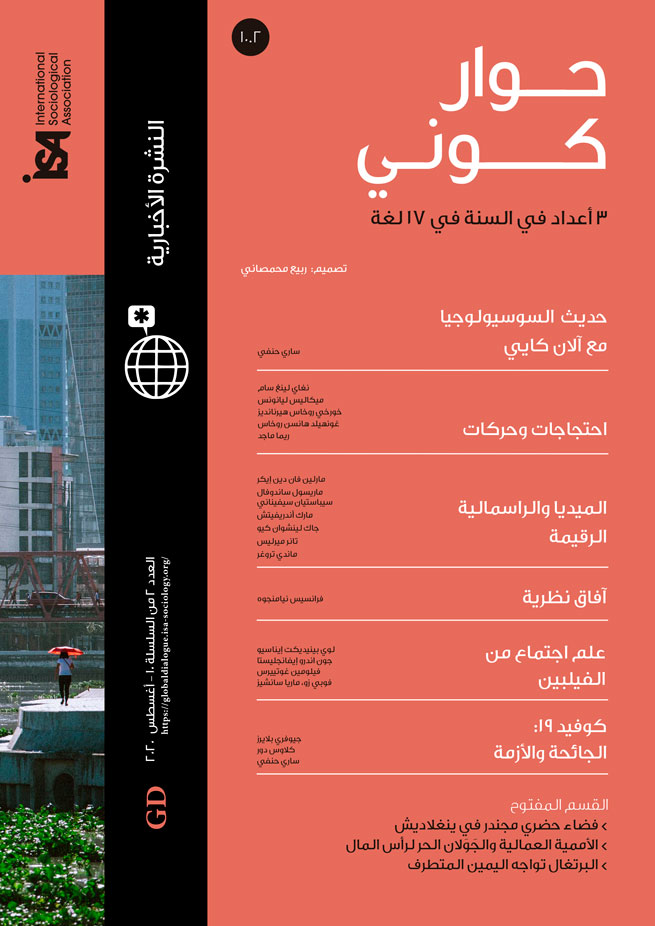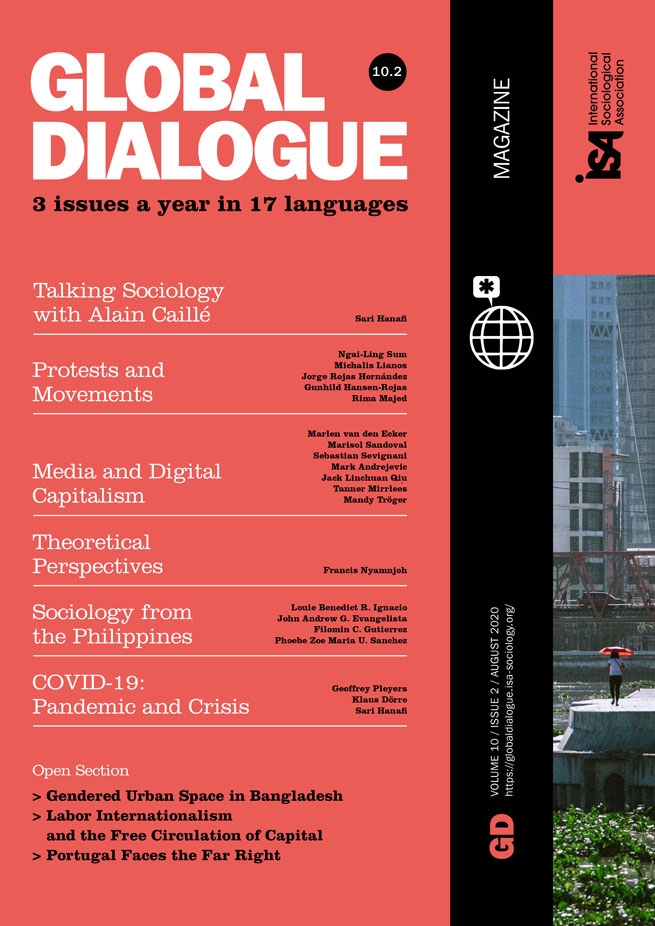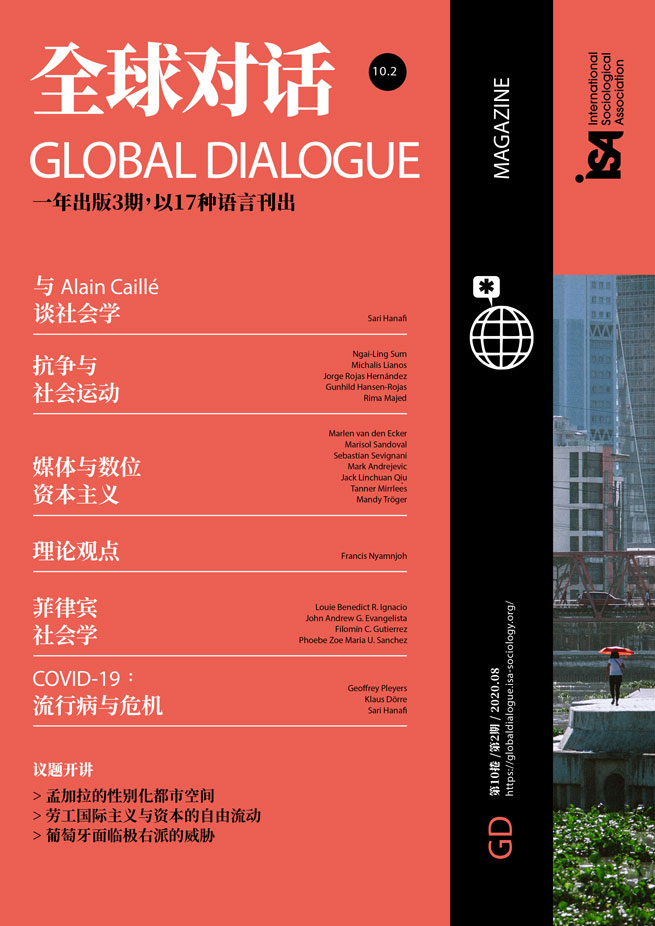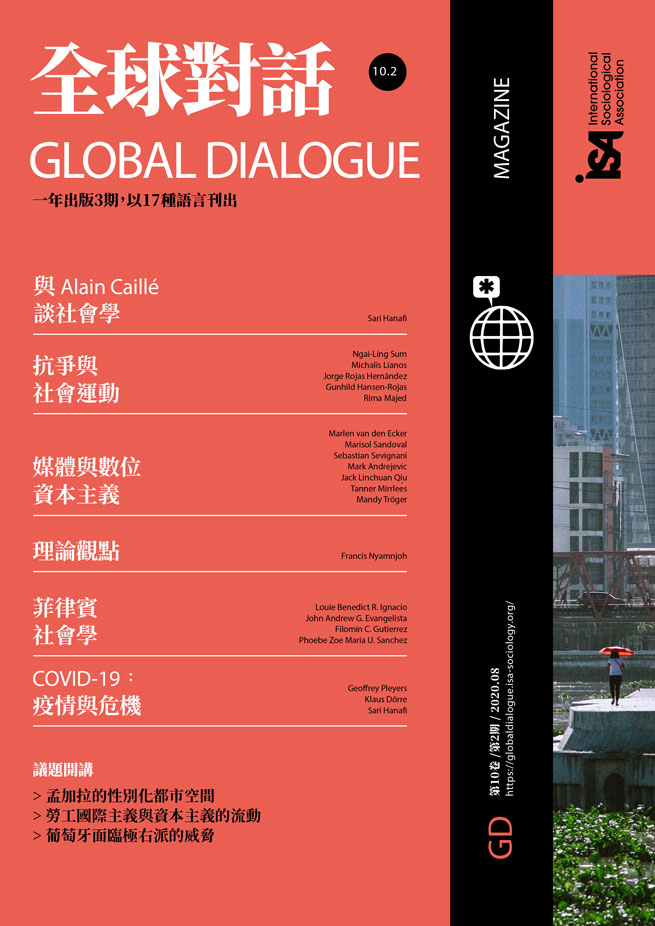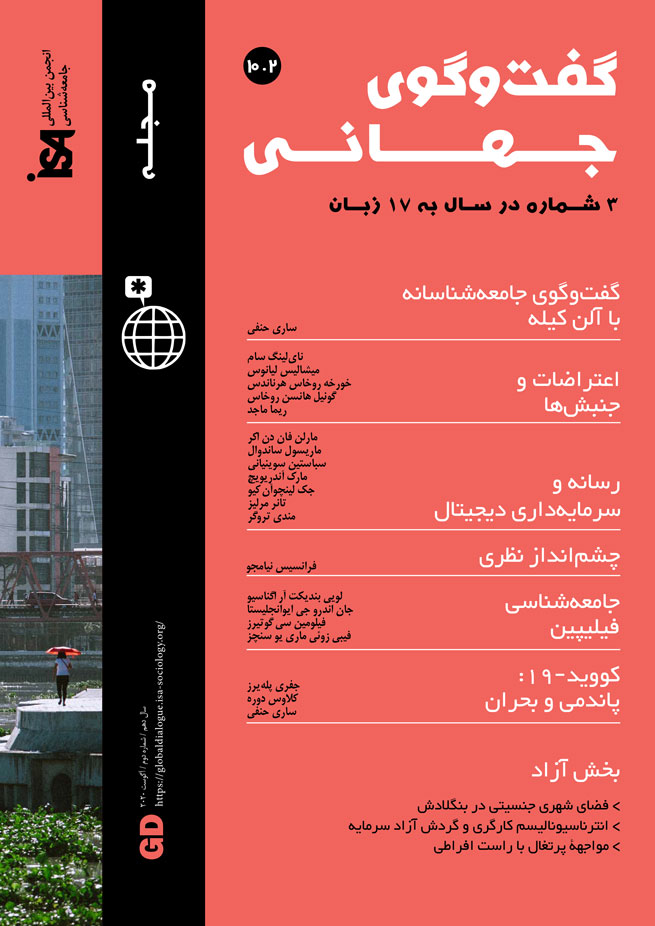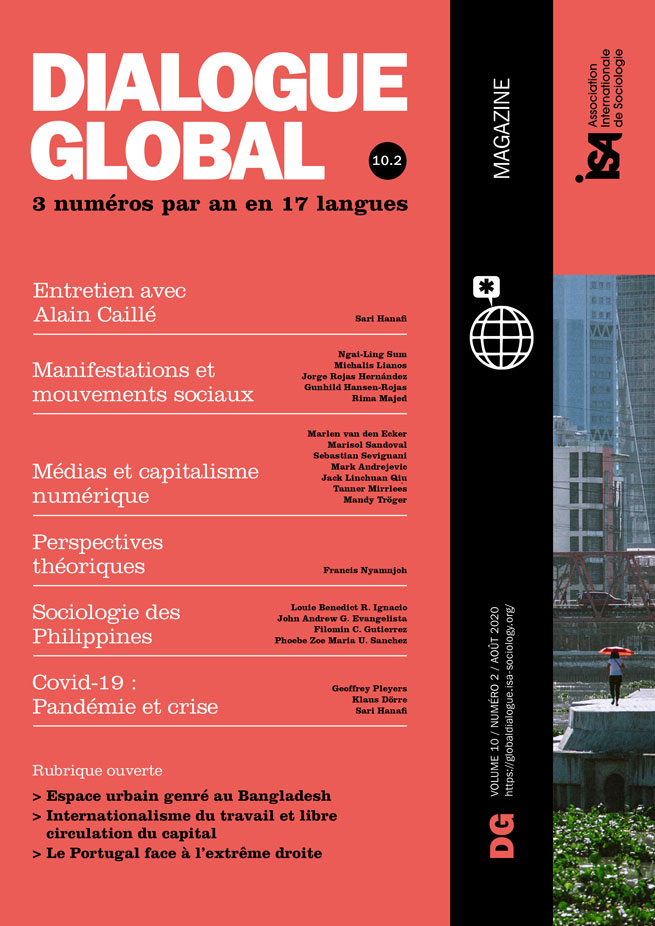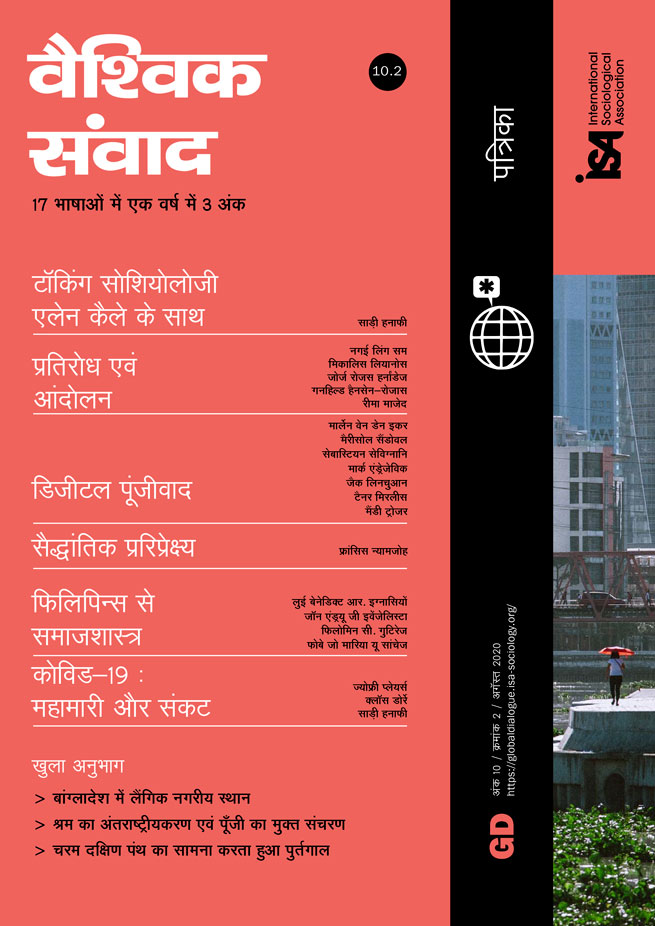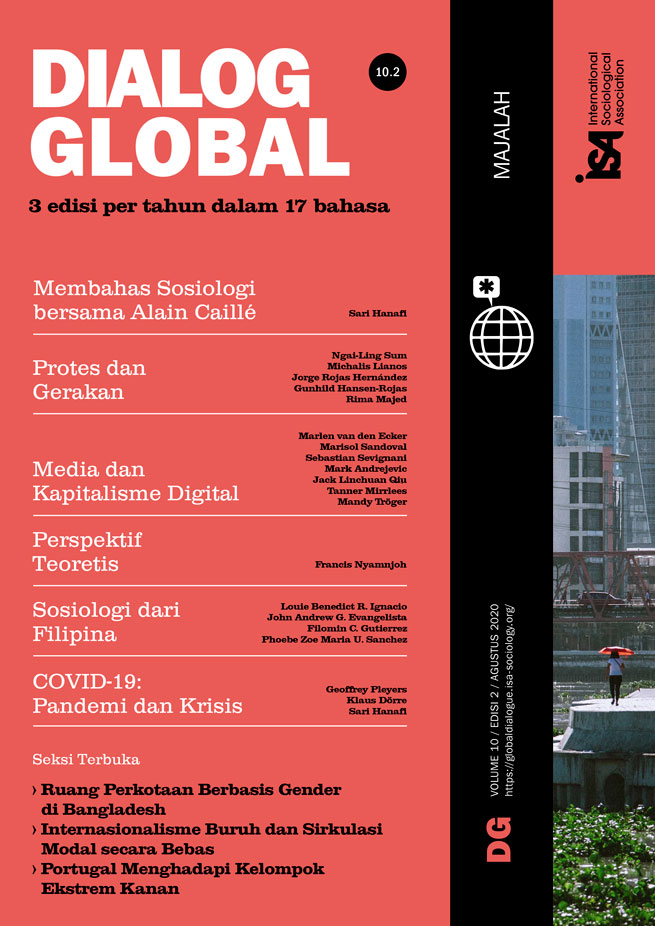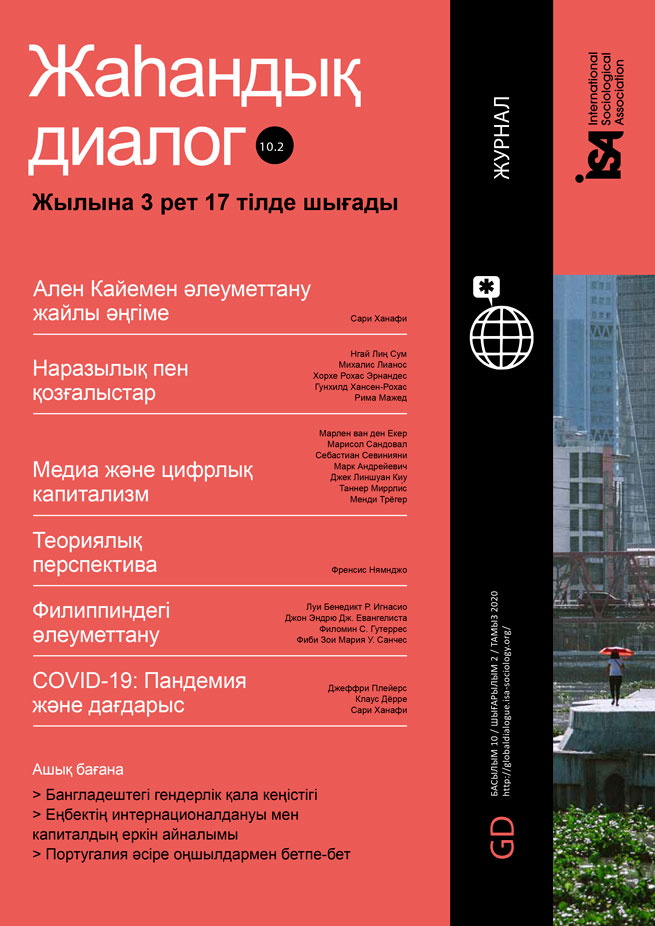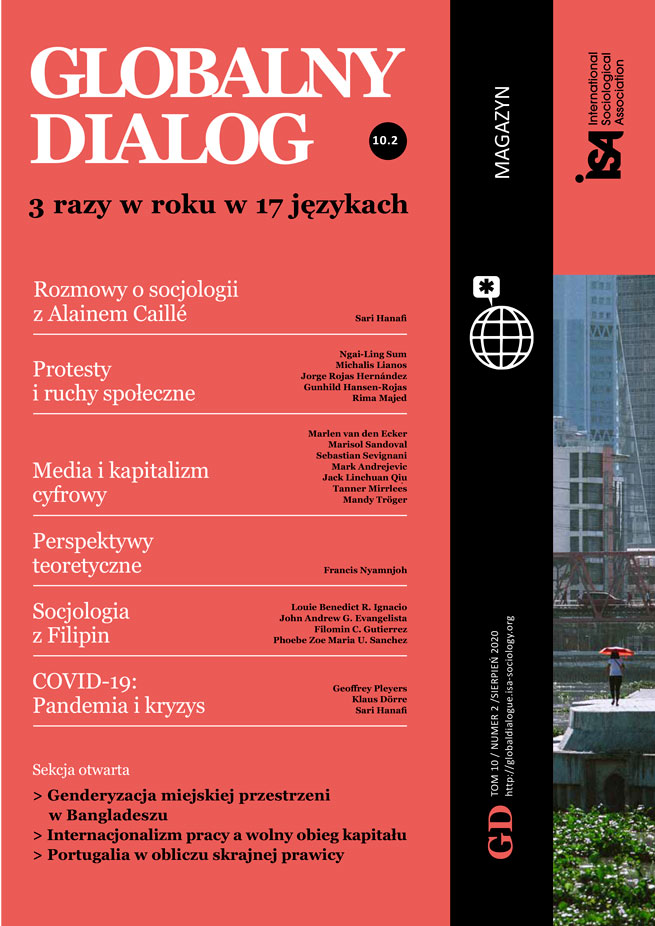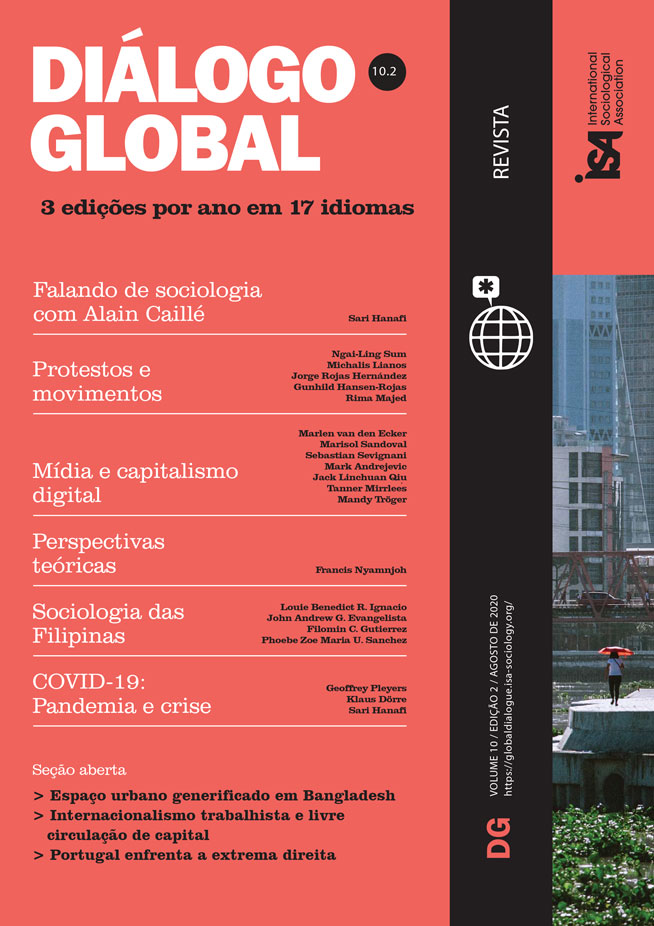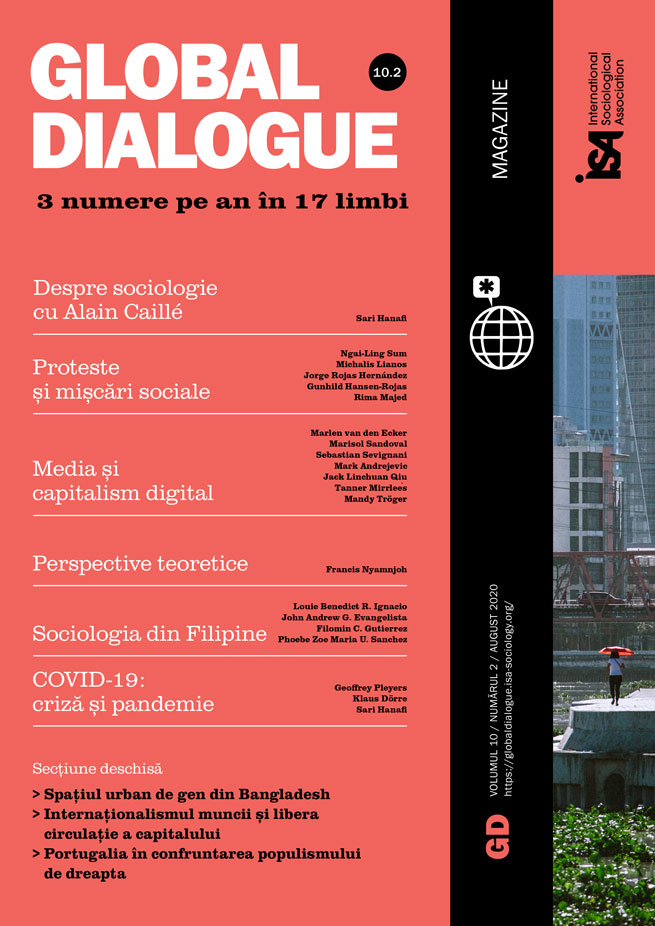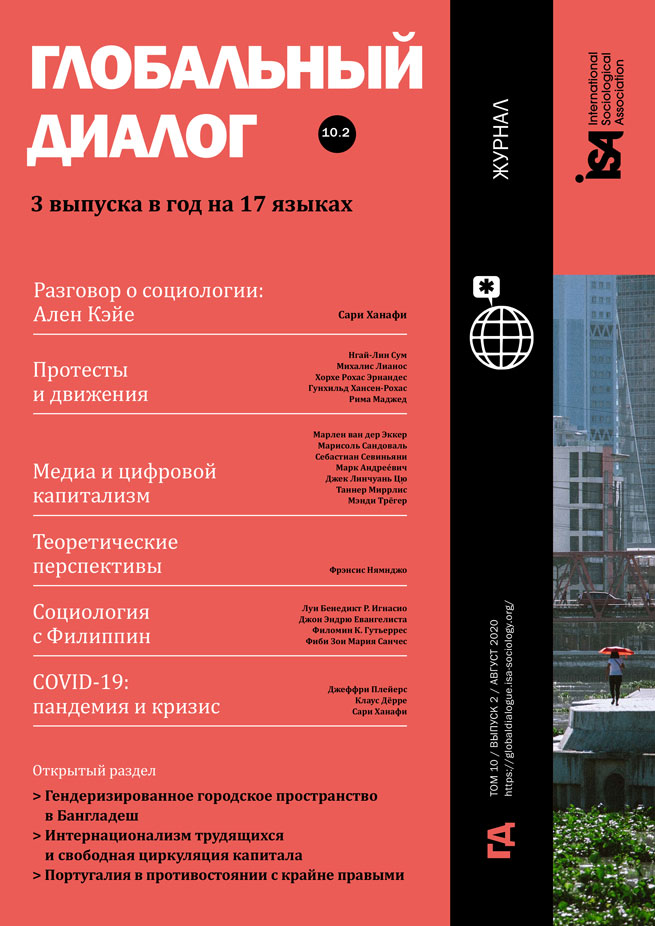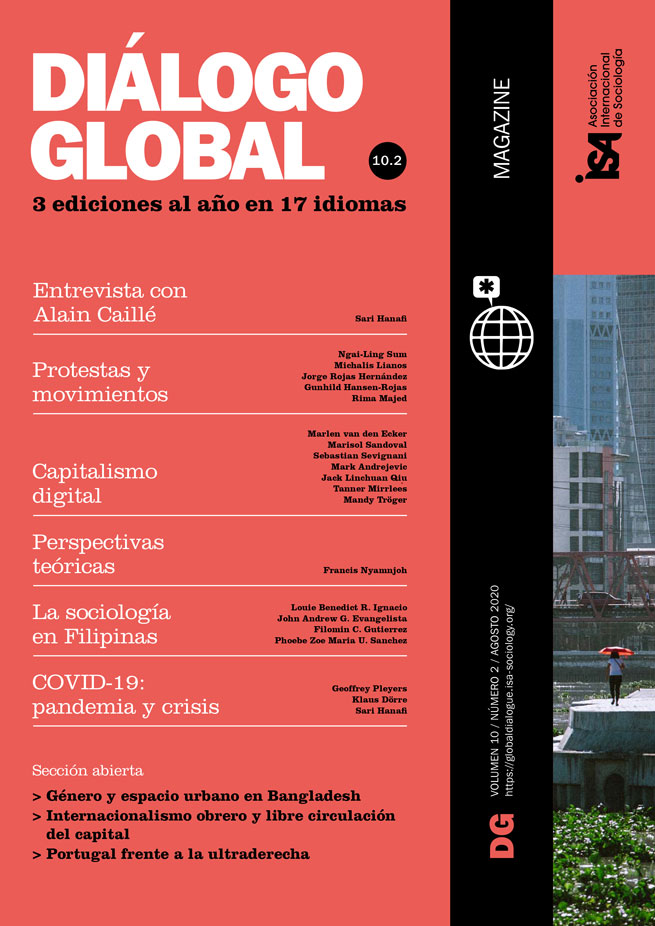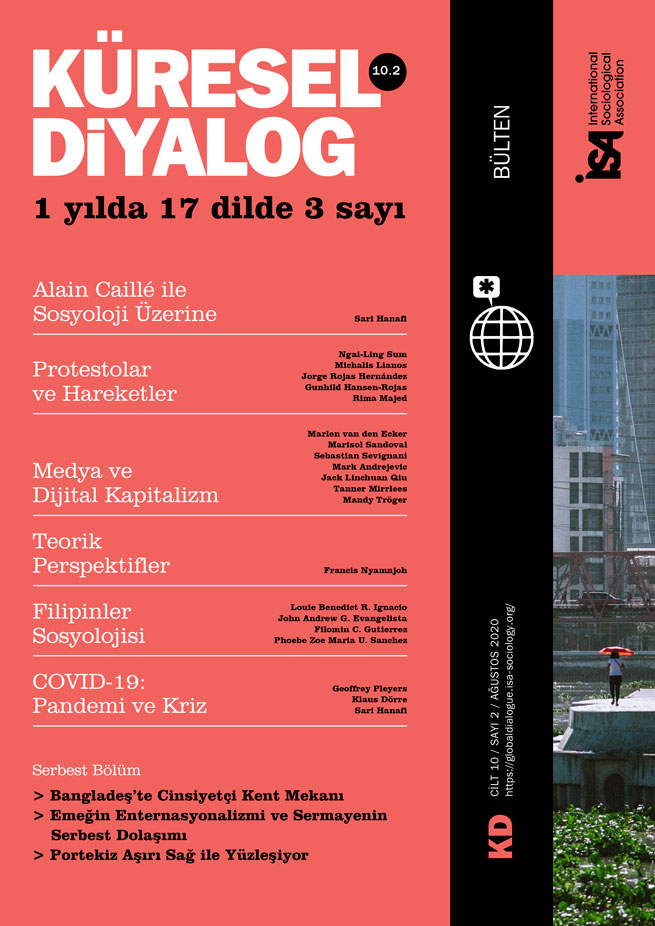Read more about Open Section
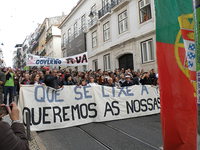
Portugal Faces the Far Right
by Elísio Estanque

Gendered Urban Space in Bangladesh
by Luftun Nahar Lata
June 26, 2020
In the summer of 2016, the US multinational Dura Automotive – a global supplier of automotive components operating in several countries – committed to deliver components to Chrysler, Audi, and BMW. Orders were on the rise and Dura was at risk of paying high fines if workers did not accept weekend overtime to fulfil orders.
The German workers at Dura Plettenberg decided that they would only do so if Dura accepted a collective agreement with IG Metall, the German metal workers’ union; the plant was threatened with relocation from Germany to Portugal and other countries, and a reduction from 1,000 to 700 jobs. Dura’s managers reacted with a radical form of dumping - they asked 260 Portuguese workers from Dura Carregado to go to Germany to work in July 2016. The trip was initially prevented by local pressure: German workers threatened to close down the factory. But in October 2016, after several negotiations, about 300 Portuguese workers arrived in Germany to produce the orders on Saturday and Sunday for almost 2 months.
Many workers received them with protests.IG Metall had in the meantime brought the case to court. The court declared an unprecedented sentence: the operation was legal because during the week Dura in Germany was German, and during the weekend it was Portuguese! In an interview, a Portuguese worker said that when they arrived the ambience was “tense” and the machines had been partially sabotaged by local workers.
Labor migration at the core of European labor restructuring
In a commodified society – where the labor force itself is a commodity – workers compete not only within a sector, but also in the national and international labor market to sell their labor power. Labor migration is linked to an objective factor; the value of the wage and the right to have a job. The absence of strong political parties representing international working-class interests has left this issue hostage to two variants of nationalist policies: one racist/ prohibitionist trend (far right) and one promoting the free movement of the labor force (liberal, conservative, and social democratic parties), sometimes including some social rights (in the case of social democratic parties). Today there is no internationalist radical politics with real influence on this issue in European societies. The migratory policies of European states have responded primarily to the imperatives of management of the labor force, and not fundamentally to humanitarian or multicultural considerations. Without effective ties of solidarity between those who earn more in favor of those who earn less, racism and xenophobia will have social grounds to grow.
Globalization has created competition among workers by lowering wages worldwide, but it may also have created the conditions for its opposite: internationalism. If a group of workers in Dura Carregado can break a strike in Germany, dockers across Europe can, at minimum cost, strike for the dockers in Portugal, helping them to win the battle.
Backing up a strike across borders
The International Dockers Union (IDF), now with 140,000 members, was founded 20 years ago in Liverpool, England. On September 29, 1995, 500 dockers on permanent contracts from Liverpool refused to cross a picket line of about 50 precarious workers. Mersey Docks and Harbour Company (MDHC) fired them all, starting a dispute that would achieve global reach between 1995 and 1998.
The Liverpool dispute can be considered the first internationalist movement of workers in Europe against neoliberalism – and such struggles have been rare. It was also a conflict that would unite precarious and flexible workers with protected workers in the same struggle through collective action that mobilized active solidarity between the two groups. The same strategy and principle would lead to the fact that in 2013 the list headed by António Mariano, the Portuguese docker who participated most actively in the support movement for Liverpool, won the election for the union leadership in Lisbon. From the beginning, the International Dockers Union has been characterized by genuine gestures of international solidarity that go beyond diplomatic words – all too common in other confederations – with international or regional active solidarity strikes, common strategies in meetings, and local and global assemblies.
Between 2013 and 2016, the union developed a series of strikes and struggles that led to the secure employment of formerly precarious workers in the Port of Lisbon, contrary to the law that had liberalized the contracting out of ports at the request of the Troika (the European Commission, the European Central Bank, and the International Monetary Fund) during the Portuguese financial crisis.
On August 1, 2012, the Portuguese government approved a new labor code that repudiated the Collective Labor Agreement and put in place: a proposal for new industrial relations; ending the limit on the hiring of casual workers; canceling the most qualified categories of workers; increasing working hours and reducing the wage rate from 1,700 euros to around 550 euros; and dismissals. The union leadership responded with a clear strategy: they subsidized the dismissed precarious workers through the strike fund of the fixed workers, and aimed to convince the International Dockworkers Council (IDC) to organize a strike across Europe in February 2014.
On February 4, 2014, under the IDC’s initiative, assemblies were held in various ports in Europe to inform all workers about what was happening in Lisbon. During these assemblies work was stopped in all ports to express their solidarity. The two-hour strike ended with a victory for the dockers in Lisbon port – the promise that the 47 precarious workers would be reinstated, some under better conditions than before. This strike of international solidarity and the Ryanair strike across Europe in June 2018 have been, as far as we know, the only international strikes demonstrating Europe-wide solidarity after the 2008 crisis. In other cases the nationalist approaches of the unions in their countries prevailed.
In my view, what was decisive in the defeat at Dura and the success of the Lisbon dockers is the evolution of trade unions and their political and trade union leadership. But this conclusion is not self-explanatory. The question is: what historical conditions have created an internationalist program in one place and a nationalist ideology in another? To answer this, we will need a case-by-case analysis of each particular factor.
Solidarity: Not just words
Globalization has created a worldwide production model – we have never been so dependent on one another. In the nineteenth century, if a factory went on strike and the boss wanted to stop it, he paid his own police – some local mercenaries. But in the nineteenth century not only repression was local; so was the daily production: raw materials, workers, parts, maintenance, all was within the same factory or close by. This is not the case anymore. A container carrier can be built in South Korea, with steel from Spain, engines of Finnish origin, inks produced in Germany, and designed at US universities.
The dockers realized in time that the precariousness of the young casual workers would be a short-term time bomb for themselves and became aware of their strength. Because complex societies run in a chain model, to stop this chain for a certain time blocks all the production at great cost. Thus, the entire country can be stopped and all the production can be rocked to its core. It is not only transport workers who have this potential power. The same goes for doctors, teachers, administrative officials, and magistrates.
The increasing terrain for workers’ self-determination all over the world has something to do with recognizing differential necessities and possibilities amongst the “social movement as a whole.” The analysis of the dynamics of capitalist accumulation and the strategic use of borders in the world market should lead us to a truly internationalist methodology. Such an internationalist perspective needs to be constructed on the basis of labor organizing, independently of capital. Verba non sufficiunt ubi opus est factum. Words are not enough; concrete acts must follow.
Raquel Varela, New University of Lisbon, Portugal <raquel_cardeira_varela@yahoo.co.uk>
This issue is not available yet in this language.
Request to be notified when the issue is available in your language.
If you prefer, you can access previous issues available in your language:
